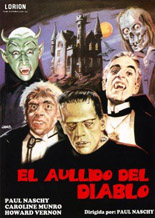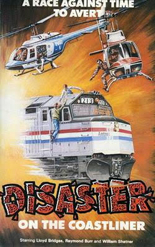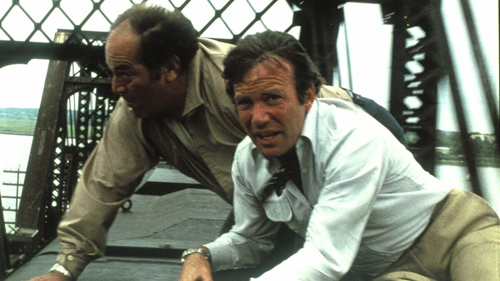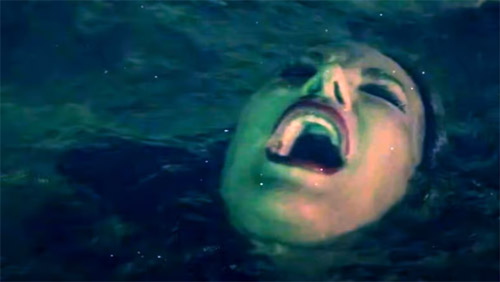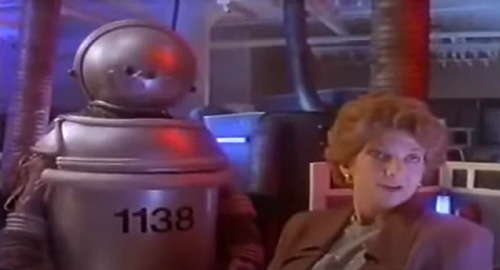
In his tribute to Lon Chaney, Boris Karloff, Bela Lugosi and makeup maestro Jack Pierce, Spanish horror legend Paul Naschy (The Beast and the Magic Sword) plays a few classic baddies of his own: Frankenstein’s monster, Mr. Hyde, the Phantom of the Opera, Quasimodo, Dr. Fu Manchu, Bluebeard and, yep, werewolf Waldemar Daninsky.
But first we see him doing Rasputin cosplay. It’s just the kind of thing a washed-up actor would do — not Naschy, but his Howl of the Devil character, Hector. He lives in a mansion with this precocious, monster-obsessed nephew (Sergio Molina, Naschy’s real-life son) and, on occasion, a village sex worker for Hector’s fiendish, fatal, carnal doings. We’re talking nipple-tearing, throat-slicing, torso-chainsawing and back-axing — the whole nueve yardas.
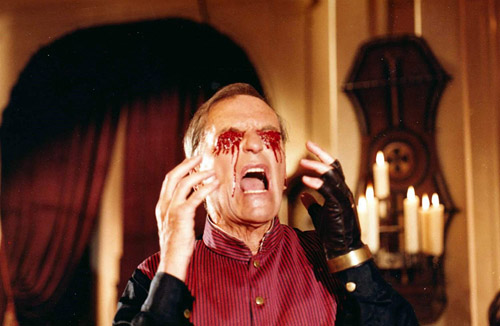
Despite Howl’s rock-hard lean into starlet slaughter, this is a middling effort for Naschy as director. And despite the radiant beauty of Caroline Munro (The Last Horror Film), this is an ugly movie in terms of its low opinion of women, each and every one deemed a whore or bitch or slut. Was Naschy working through some misogyny or was it simply an excuse to get the parading ladies free of clothing posthaste?
One thing’s for sure: The greatest lines await your ears when Hector’s servant (Howard Vernon, Countess Perverse) shows the movie’s first rent-a-harlot around the place:
Servant: “There are places in this house where time has stopped forever.”
Harlot: “Fuck that.”
That had me Howling. —Rod Lott

